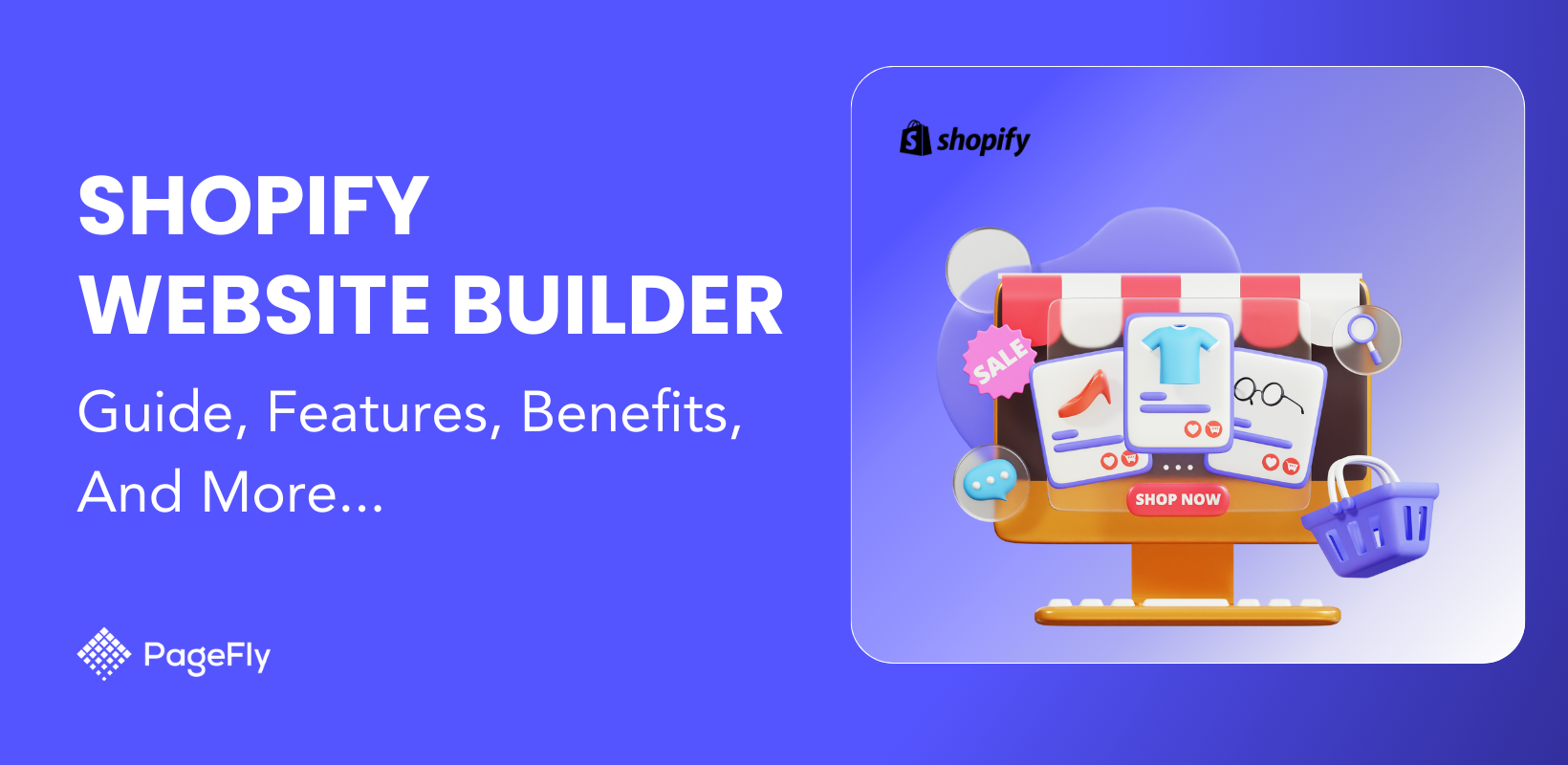A Shopify staging site, also known as a sandbox or development site, is an exact duplicate of your online store that you can use to experiment with changes before publishing them on your live store. But why is it needed, and why is it important?
You see, if you have just started your online business with a few products and some customers every few days, you might not need a staging site. But if your business is at the stage where it attracts multiple customers and closes sales day in and day out, having some tiny bugs or errors on your site could lead to disaster.
This is the case if you own a medium-sized business or a large enterprise that has a degree of complexity in your online store. In this case, if you are implementing changes in your store in real time, you are exposing your business to a lot of unnecessary risks.
Because a simple bug that affects the functionality of your website could drive customers away. And with them goes your potential profits. What’s worse is if a seemingly minor modification results in a downtime which renders your website unusable.
So before that happens, read this article to prevent downtimes and lost revenues from your online store.
What Is A Staging Site On Shopify?

Source: Bluehost
A Shopify staging site is a separate environment where you can safely test changes and new features on your online store without making any effect on your live store. Also called a sandbox or development site, it allows you to experiment with live themes, plugins, and other customizations without risking the reliability of your live Shopify store.
In essence, this staging site acts as an incubator where you can test every aspect of your online store, including version updates, implementing new product listings, and design changes before pushing them to your customer-facing site. If you’re a developer, you can even test custom code in a staging site.
Why Do You Need A Shopify Staging Environment?

Source: Kinsta
Making live changes to your store is extremely risky. It’s like chucking a cup of water straight to your face without knowing if the water is piping hot or called – it’s an exaggeration, but it happens.
Only the boldest of the bold do this. But if you ask us, we’d rather be wimp and safe, instead of bold and careless – especially when talking about damages that could take days or even weeks to rectify. We’d rather save time.
And that’s the main thing a Shopify staging site offers. Although staging a website also takes time, there is absolute certainty when you deploy changes. Thereby saving you more time and money from repairing website errors.
Benefits Of A Shopify Staging Environment

Source: Template Toaster
In addition to saving time, here are the other benefits that you get from a Shopify staging site:
01. Avoid potential conflicts when installing new apps: Testing newly installed apps in a staging site ensures that they are compatible with your currently installed apps, preventing disruptions to the functionality of your live store.
02. Prevent destroying your store design and functionality when choosing a live theme: Experimenting and exploring new themes in a staging environment allows you to perfect the design before implementing it on your live Shopify site.
03. Ensure that the custom code you're embedding to your site works perfectly: When you test custom code to your development Shopify site, you will see its potential impacts to your store’s functionality, ensuring that it works as intended before deployment.
04. Avoid customer frustration due to a page error or bug: Testing changes in a staging environment helps you resolve any issues that adversely impact customer experience (which could result in increased bounce rates). As such, a development Shopify site prevents you from losing potential sales.
05. Eliminate the risk of downtime when something goes wrong: Using staging stores allows you to address serious problems that could result in store downtime, which is the worst thing that could happen when customizing a live store. A consistent uptime on your store means uninterrupted services and no impairment to your store’s capability to generate revenues.
Learn more about Multiple Shopify Stores
How To Create A Staging Site On Shopify?
The process of creating a development store on Shopify varies depending on the plan that you’re using.
Basic, Shopify, Advanced Shopify

Source: The 4
Unfortunately, standard Shopify plans do not come with a staging site. This means that if you’re subscribed to Basic, Shopify, and Advanced Shopify, you would have to subscribe to an additional paid Shopify plan so you can set up a staging environment. This step is crucial because this second store will be used to duplicate your original store later on.
For the second store, you can use a Basic plan as a staging site so you can test all the functionalities of your original store, including the installed apps in the latter. If you’re in the US, this Basic plan would cost $39 per month. But the good thing here is that you have the option to lower it down to $14 per month if you use Shopify’s Pause and Build function.
Pause and build
To do that, go to your Shopify Admin > Settings > Plan. Then, click Deactivate store > Pause and build. After reading the details, click Switch to Pause and build.
The only drawback with a Pause and Build plan is that the checkout function won’t be available.
If the Basic plan for a staging environment is sufficient to run your tests, you can simply stick with it. Otherwise, we recommend using the same plan on your Shopify staging site as your live store.
Shopify Partner Account
If you’re planning to use the Shopify staging site for minor changes, you can also use a Shopify Partner account. The good thing about this is that it won’t cost you anything.
And if you’re subscribed to any of the standard Shopify plans, you can easily get a Shopify Partner account by following these steps.
You can set up unlimited test stores in a partner account. However, you cannot test every app here nor can you process real transactions. But for the majority of Shopify staging site uses, this is enough.
Shopify Plus

Source: Radiant
If you are using a Shopify Plus plan, there’s no need for an additional subscription because this plan comes with nine free storefronts as well as a free sandbox or development site feature.
As such, you can simply use the free development store.
Set Up A Staging Site Using Rewind
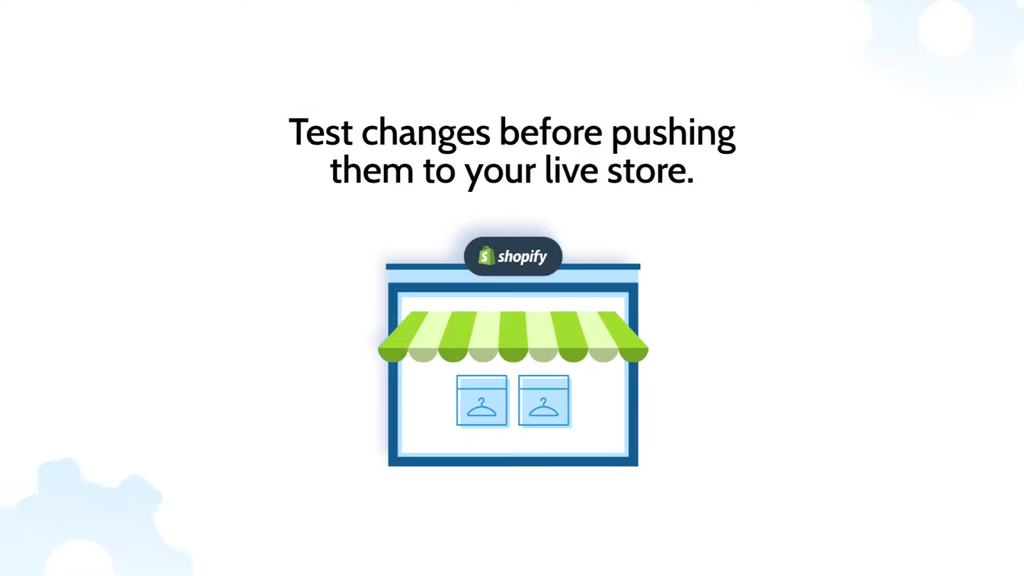
Source: Rewind
When your Shopify staging store is up and running, you don’t have to manually duplicate your original website to mirror it down to the last code. Besides, there is a high probability that you will miss some crucial details. This will render the development store pointless as it is not exactly the same as your original store.
To make your life easier and the process faster, we recommend using a third party that will create a mirror image of your online store.
One app that we highly recommend for a Shopify staging site is Rewind Staging.

Source: Shopify App Store
Rewind Staging is part of Rewind’s Protection Suite for various types of websites, including Shopify stores. Aside from providing a sandbox or development site, Rewind also has a software called Rewind Backups that lets merchants back up their entire stores so they can always restore a previous version.
But speaking of Shopify staging sites, Rewind Staging offers an intuitive software that even non-expert developers and Shopify store owners could set a staging environment to their Shopify stores.
You can quickly setup a Shopify staging environment using Rewind staging in 7 easy-to-follow steps:
01. Get your staging site ready by following the steps provided in the previous section.
02. Install Rewind Staging and subscribe to their Unlimited Plan. (They only have one subscription plan.)
03. Create an association between your live store and your Shopify staging site.
04. For maximum control, duplicate your entire store to the staging site.
05. [Optional] Check the “Continuously copy changes” box to allow Rewind Copy to maintain an automated ongoing sync between your live store and staging environment.
06. Initiate the process by clicking “Begin Task”
07. Depending on the amount of data that you are duplicating, the process could take a few minutes to a few hours. So if your store has a ton of data in it, expect it to take longer. After the duplication process, you can start working on your staging site.
Here’s a video tutorial of this entire process:
Other Way To Create A Shopify Staging Site

Source: Plug In Useful
Aside from using Rewind Staging, there is another way to set up a Shopify staging environment. However, we only recommend this step if you are an experienced developer as it does not have the automations that Rewind Staging offers.
Be that as it may, you can get the same results as Rewind Staging as this option will also allow you to mirror your live store so you can safely test and deploy changes later on. Additionally, the cost entailed with this step is also lower than the Rewind Staging subscription.
Deploying Some Design Changes To Your Store?
As we previously mentioned, any changes that you plan to implement on a medium-sized or large online store call for a staging site as a safety net.
As your brand evolves, you might figure out that your current designs no longer fit your brand’s new identity. When that time comes, you will need a page builder that gives you a ton of flexibility to create the design that you envision for your brand.
And if you want to overhaul your site to give your customers a renewed impression of your brand, we highly recommend PageFly.

Source: Shopify App Store
Our platform is the most popular and highest-ranking page builder on Shopify. As such, we guarantee that you can achieve any design that you want and you’ll get top notch support when needed.
PageFly features an intuitive drag-and-drop system for ease of use for seasoned web designers. You can use it to build an awe-inspiring homepage, stunning product pages, and practically rejuvenate all the pages in your live store.
Of course, you want the entire process to be safe. So be sure to use a staging site first to finalize the design. After that, you can deploy them to your live online store.
Conclusion
Fortune favors the bold. However, there are instances when boldness causes irreversible harm. Such is true when you are directly implementing changes to your online store without a safety measure to protect your online assets.
This is why Shopify staging sites are crucial as these test environments act like an insurance policy. In a staging environment, you can experiment on as many things as you want and you can even go nuts with whatever you want to do. Especially knowing that your online store is unharmed.
Shopify Staging Site FAQ
For Basic, Shopify, and Advanced Shopify plan users, the platform does not offer an in-built staging site. However, you can use a Basic plan as a staging site so you can test all the functionalities of your original store, including the installed apps in the latter. If you’re in the US, this Basic plan would cost $39 per month.
But the good thing here is that you have the option to lower it down to $14 per month if you use Shopify’s Pause and Build function. The only drawback with a Pause and Build plan is that the checkout function won’t be available.
On the other hand, the Shopify Plus plan comes with nine store fronts and one Shopify staging site.
The standard Shopify plans (Basic, Shopify, Advanced) don’t come with a staging environment. On the other hand, Shopify Plus comes with one test environment so developers could run tests on their sites before deploying changes to their live store.
If you are a standard Shopify user, you can use a Basic plan as a staging site so you can test all the functionalities of your original store, including the installed apps in the latter.
To minimize your monthly costs, you can downgrade the Basic plan to Pause and Build which only costs $14 per month. You can then mirror your live store to the staging store using Rewind Staging.




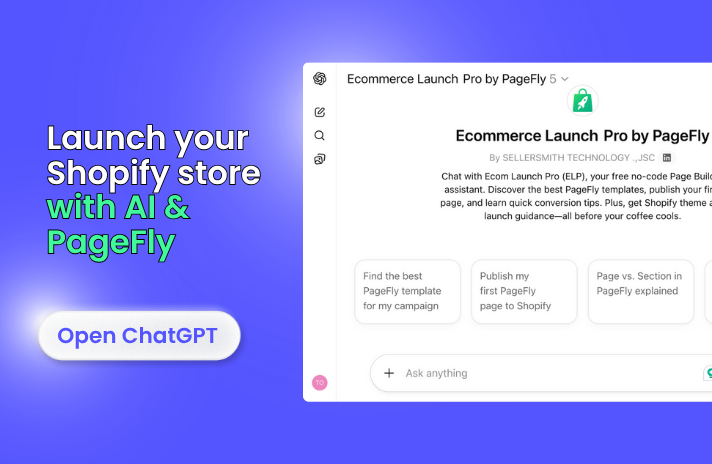
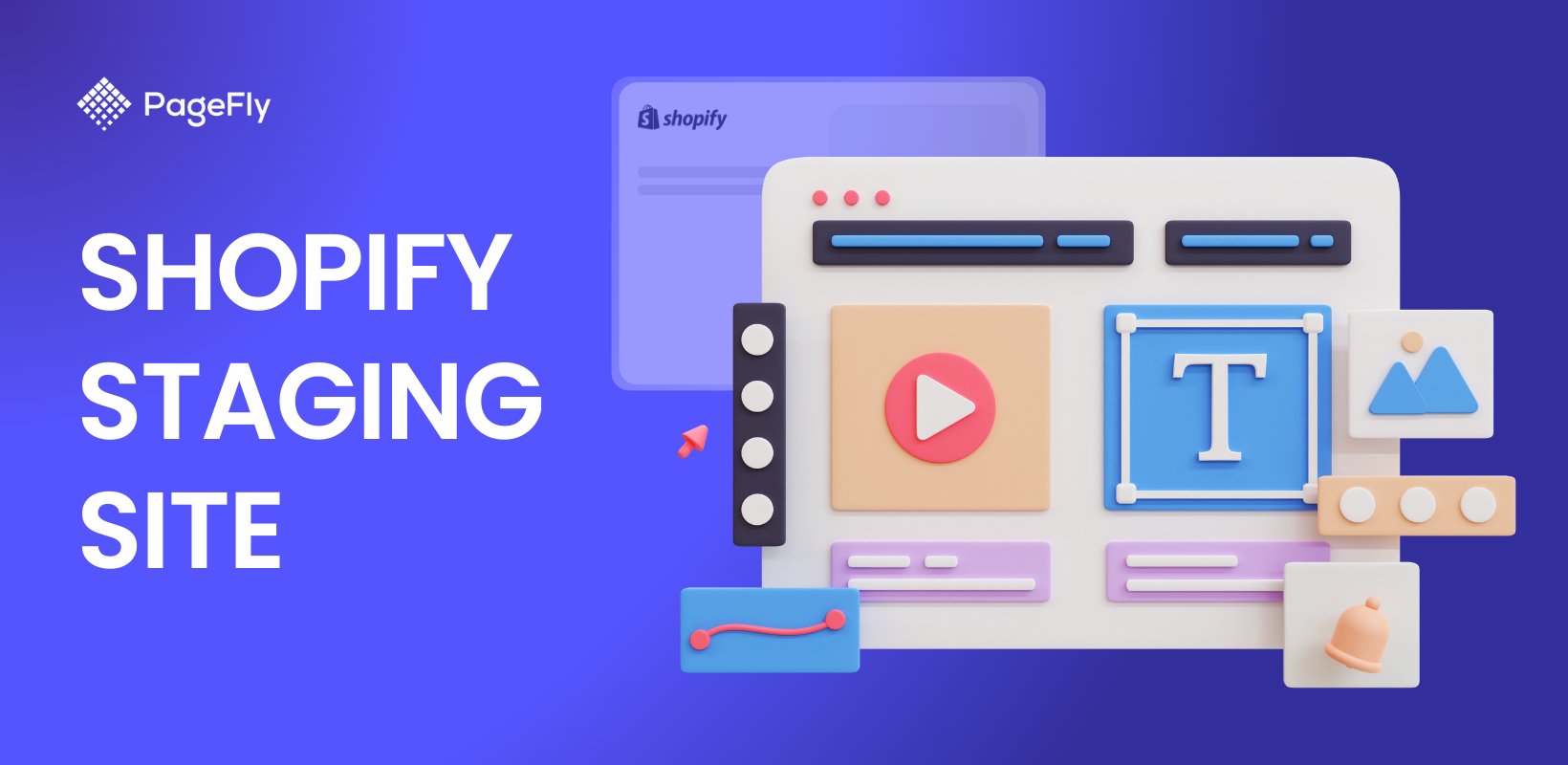


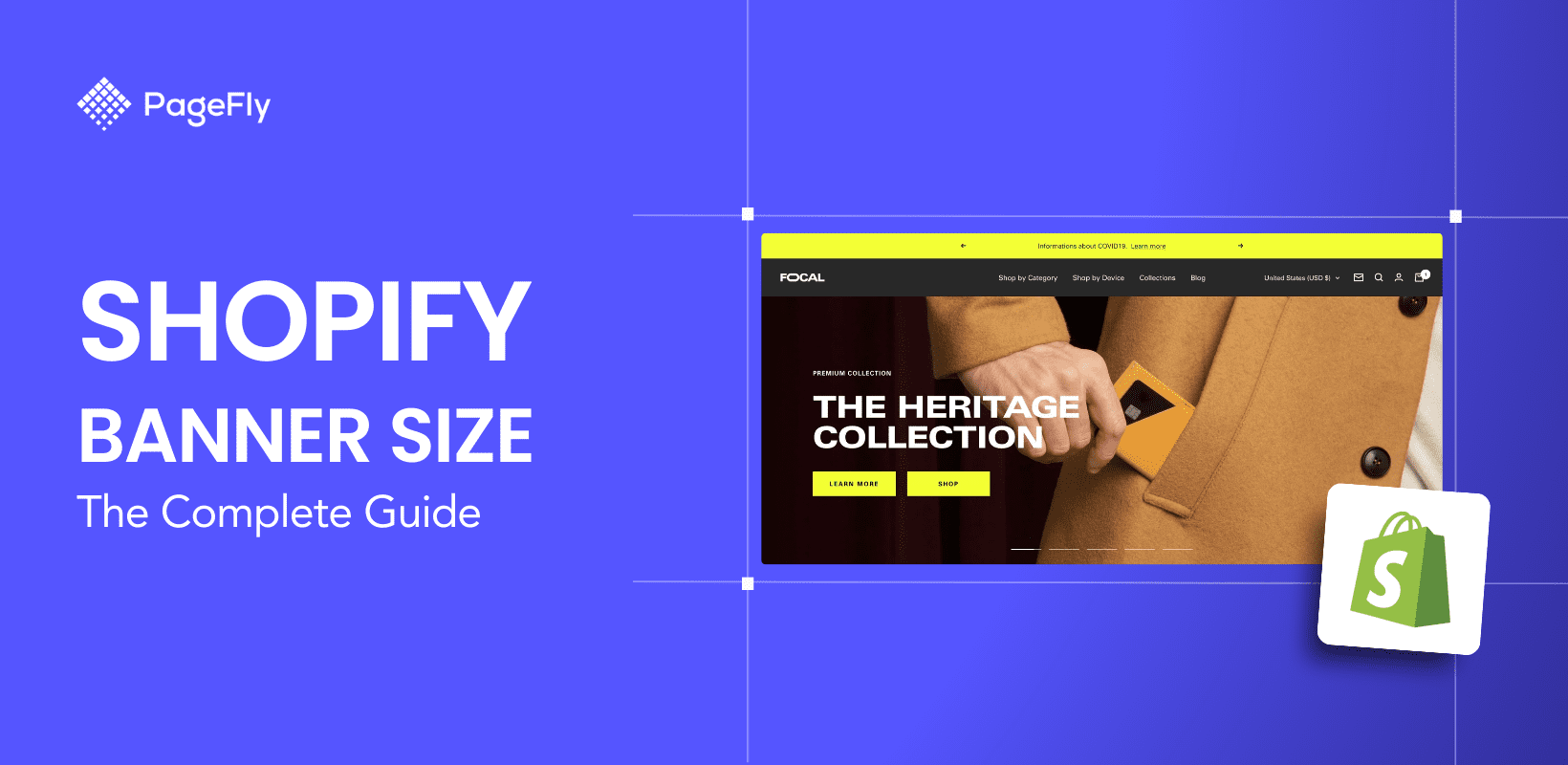
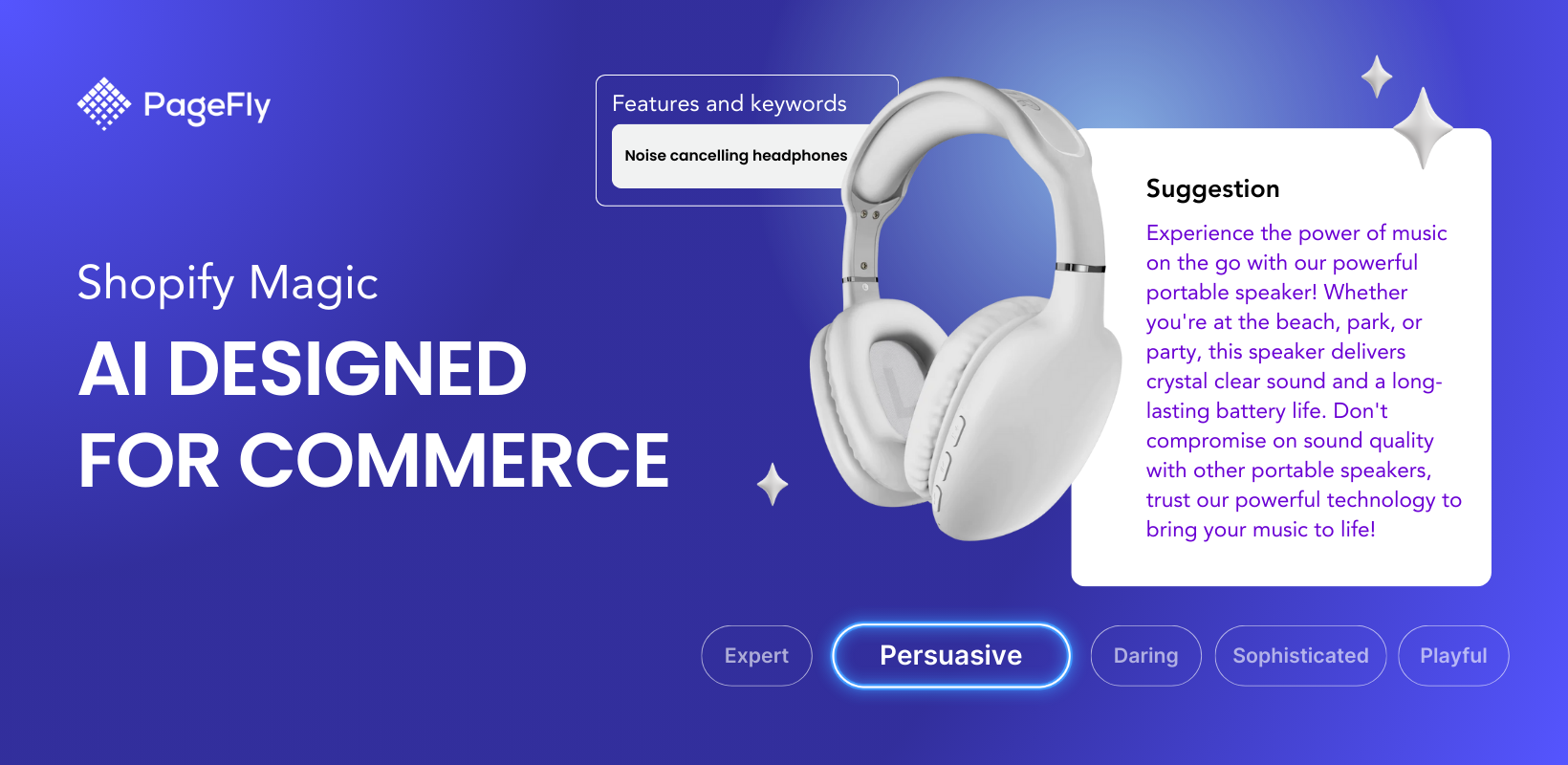

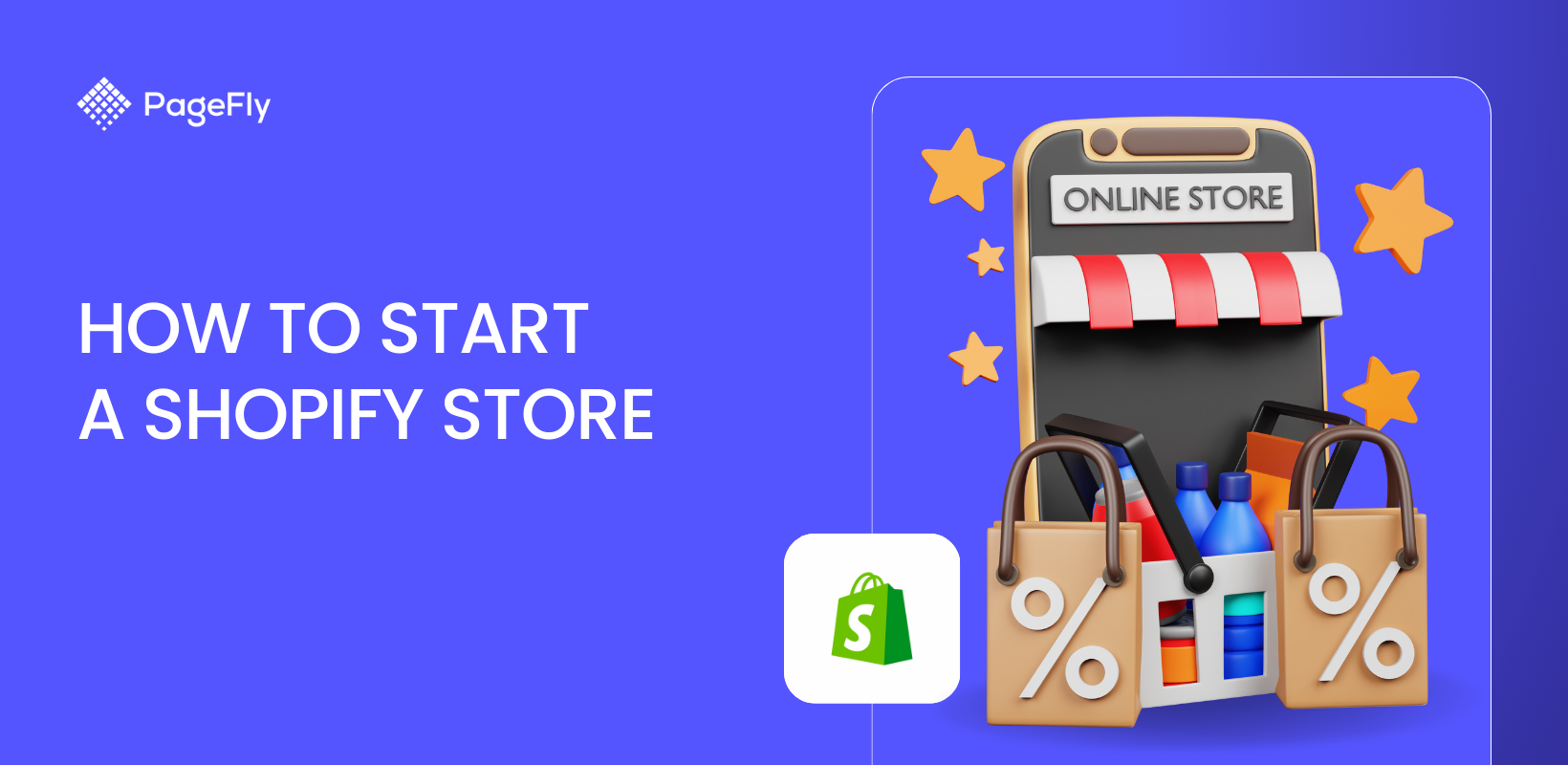
![27 Best Shopify General Stores + Complete Strategy Guide [2025]](http://pagefly.io/cdn/shop/articles/Best_Shopify_General_Stores_2f9d09f2-7c38-4da9-a495-e9f4898ddd68.jpg?v=1757271936&width=1640)

